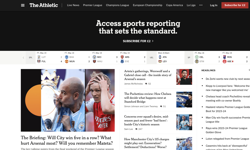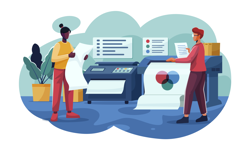The internet and digital technologies offer unprecedented opportunities for creativity and content. Publishers make a unique economic, cultural and social contribution. But right now they face, and indeed regulators face, some difficult decisions that will ultimately determine if and how the potential to engineer a flourishing European market for digital content is achieved and if and how quality professional journalism is to be funded into the future.
At the heart of the debate are the crucial issues of copyright and advertising: what policies must be pursued to develop a management system for copyright that is fit for the 21st century and how do publishers adapt business models to power a thriving content industry in the digital age?
With EU Internal Market Commissioner Michel Barnier poised to publish a new strategy on copyright this year, and Commissioner Kroes already public with her ambitious Digital Europe Strategy, legislators must remember that in their aims to get more consumers online and active across all the EU states, it is the quality of the content and the media and the content industries that fuel the creative economy. Digital is not just the infrastructure that carries the content, and user-generated content, although often creative, is no substitute for reliable, authoritative content produced by well-funded news and other publishing organisations.
Copyright has supported innovation and the creative economy for the past 300 years. The European Publishers Council, representing 29 CEOs and Chairman of leading newspaper, magazine, journal and database publishers in Europe, is working with the European Commission to adapt tried and tested solutions for copyright rather than running the risk of introducing inappropriate and untested new measures that could threaten established creative businesses; to ensure that Europe’s publishers are in no less favourable a position online than other producers and distributors of digital content; to fight against piracy of copyright content, and to preserve publishers’ freedom to choose licensing solutions, including the use of automated systems of licensing through technological innovation such as the rights communication tool ACAP.
Making copyright work on the web is crucial because, whilst publishers have embraced and invested in new media, third parties continue to appropriate the value of those efforts and that cannot be allowed to continue.
And traditional media with its quality - but first hand, high costs of production, must be in a position to compete in a fast-changing media environment. But it is hard to recoup investments when competing head on with new intermediaries who bear none of our costs - not only of production but also none of the legal costs of editorial freedom, or anti-piracy measures and general compliance costs. Yet off the back of our content they divert the same advertising revenues via their sites but often on unequal and untransparent terms.
With the structural decline of ads in print, and online advertising likely to represent 20% of total global advertising by 2013, publishers need freedom to advertise and fair competition in the digital environment.
Fair competition doesn’t exist at the moment. Regulators need a clearer understanding of the competition issues that are rife in the online advertising market where there is arguably abuse of market dominance and a lack of transparency in the internet search market. Search dominates the European online advertising market and the dominance of the market leader threatens the economic space of the other players in the internet advertising value chain. This is not good for publishers; it is not good for consumers; it is not good for the creative economy.
But of course publishers continue to innovate and as more consumers build lasting relationships with online publishing brands, opportunities abound for closer relationships between publishers and advertisers. Knowing our readers provides real value to advertisers and starts a trend away from the commoditisation of advertising we've seen through search.
Regulation of advertising tends to be harsh in the EU, with advertising all too often used as a scapegoat for societal problems or the latest quest for health or environmental messages.
When it comes to developing new techniques to re-build value in advertising online that is linked with our publishing brands, or when it comes to what we can, can't or might be forced to include in ads, we need light-touch self-regulation or we will continue to be disadvantaged compared to new media.
There is a lot at stake right now for publishers and we call on Europe’s regulators to value our content and make it possible for us to continue to enrich the internet, to contribute to the knowledge economy, and to promote democracy, diversity and pluralism in the EU.










